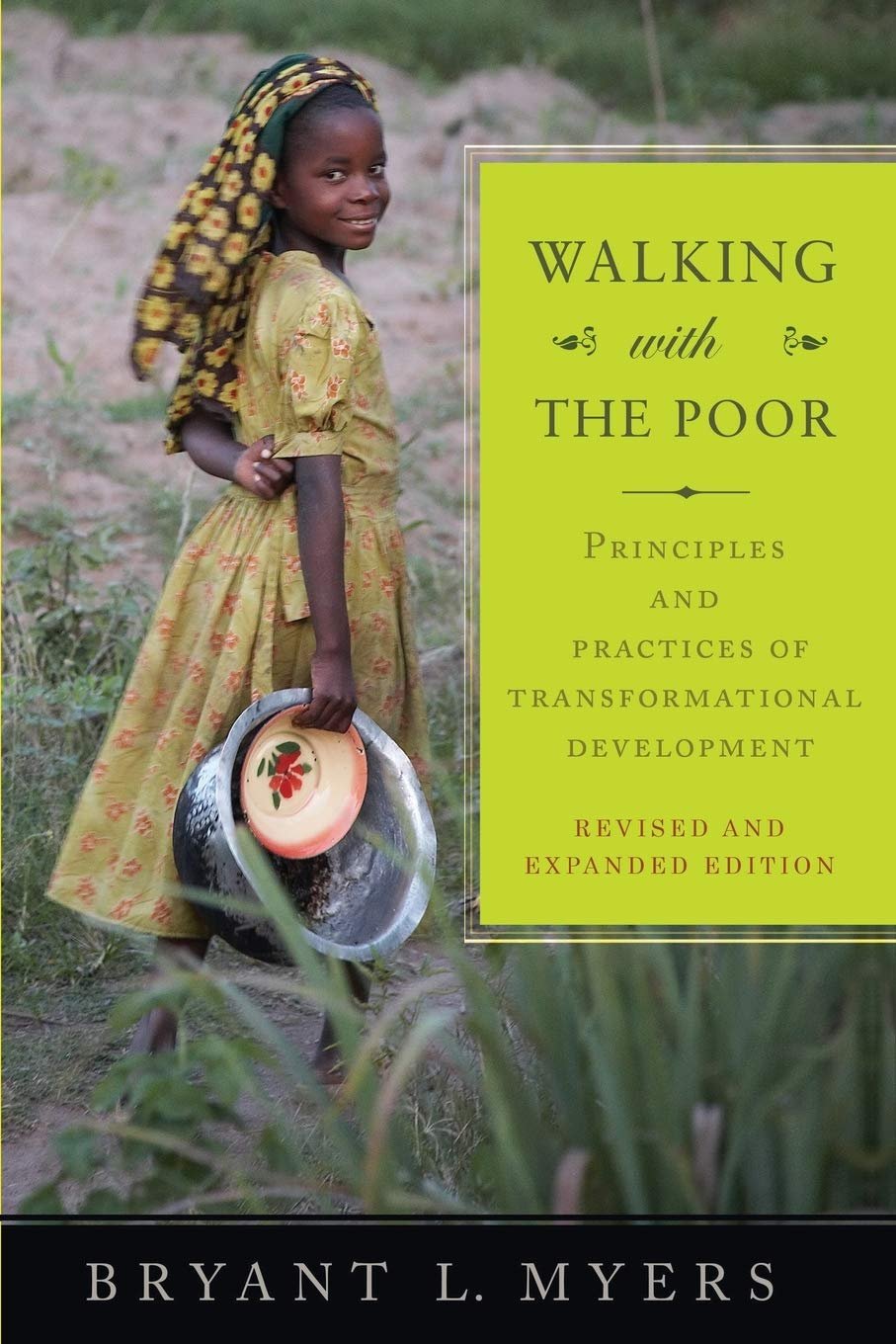Walking with the Poor
When Bryant Myers published Walking with the Poor in 1999, it was a groundbreaking work that soon became the definitive handbook for academics and practitioners in the field of transformational development. More than a decade later, with the release of a new revised and expanded edition, it remains as important as ever.
Building on the work of anthropologist Paul Hiebert and Jayakumar Christian, a development practitioner in India, Myers introduces key insights to frame the discussion. Hiebert’s concept of the “excluded middle” pinpoints a blind spot in the Western worldview that fails to account for the spiritual realm, focusing instead only on the material and the divine. Christian, meanwhile, asserted that poverty has to do with the marred identity of the poor, the god-complexes of the non-poor, and relationships that do not work for the well-being of all. These insights, Myers argues, provide the necessary foundation for a further understanding of development for Christian practitioners.
We have much to learn from those who have pioneered the field of development, and Myers provides a survey of key contemporary thought leaders, including Jeffrey Sachs, William Easterly, Amartya Sen, Hernando de Soto and Muhammad Yunus. There is much to affirm in the work of each of these practitioners and theorists, but Myers argues that none of them go deep enough, ultimately leaving the hearts and minds of the poor and non-poor unchanged. This is why it is so important for Christians to be equipped not only with the best professional tools but also a solid theological understanding of how people and societies change. Increasing access to markets, expanding a person’s freedom and ensuring land rights can all go a long way in contributing to the development of a community. But without personal and relational transformation, materialism and greed will go unchecked and development may yield bitter fruit.
“We are to see the world as created, fallen, and being redeemed, all at the same time,” Myers writes. That goes for individuals, for communities and for entire societies. As Christians, whether we are development practitioners or not, Myers argues we are to witness to the already-but-not-yet Kingdom of God in life, deed, word and sign – not merely through evangelism, nor only through meeting physical needs. Transformational development goes deeper than mere material aid, and it’s imperative that those who walk with the poor make clear that our Savior is Jesus -- not technology, markets and medicine, despite the significant benefits of each.
The book is a weighty one, checking in at over 350 pages, but there are ample diagrams throughout which summarize the key concepts of the book for those visual learners among us. Still, the writing style is clear and Myers doesn’t waste words, moving seamlessly between principles and practices, from history to theory to theology, and ultimately to practical, transformative application.
Walking with the Poor remains a must-read for those in the field of development, and church groups and mission organizations seeking a more comprehensive foundation and theological basis for transformational ministry will benefit as well. Indeed, as more and more ordinary church members in North America are exposed to the needs of the world – ranging from hunger and the HIV/AIDS crisis in sub-Saharan Africa to sex trafficking in southeast Asia to sprawling urban slums in Latin America – it is essential that we have the proper tools to respond. The principles and practices in Walking with the Poor will not resolve every question one will encounter in transformational development work, but they will provide the foundation to get started.
This review was originally published in PRISM, a publication of Evangelicals for Social Action.
